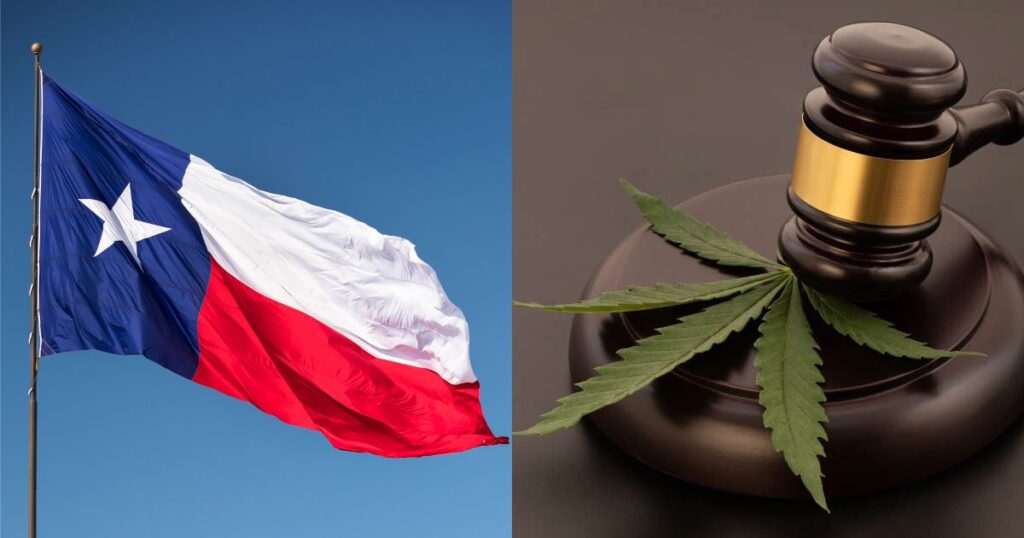Texas Senate Bill 3 (SB 3), a proposed piece of legislation that has sparked widespread debate, after passing the Senate this weekend. It is now awaiting Governor Greg Abbott’s decision.
The legislation, if signed, would bring major changes to the state’s hemp and THC-based retail industries.
SB 3 is a major pivot in state policy, proposing a ban on any consumable products containing delta-8, delta-9 THC, or other intoxicating cannabinoids derived from hemp.
Under the bill, only non-intoxicating cannabinoids such as CBD and CBG would remain legal for sale. This shift comes six years after hemp production was legalized in Texas with House Bill 1325.
However, lawmakers now cite concerns over misuse and public safety as the main drivers for the proposed changes. These are the concerns they cite as the reason for backing Senate Bill 3.
Concerns from Texas’s Hemp Industry
The Texas hemp industry, currently valued at $8 billion annually, faces the possibility of significant upheaval should SB 3 be enacted. Approximately 50,000 workers involved in the sector risk losing their livelihoods if businesses reliant on THC products would shut down if signed.
Retailers specializing in delta-8-infused edibles, beverages, and vapes anticipate severe financial consequences. With some warning that the industry, that earns billions every year would revert back to the illicit market.
Advocates from the Texas Hemp Business Council criticized the legislature’s move. Stating that the ban disregards the voices of small businesses, farmers, veterans, and medical cannabis users.
During hearings, hundreds of individuals—including veterans and patients managing chronic pain with THC products—pleaded with lawmakers to reconsider. Yet the Senate approved the House’s version of the bill without amendments.
Judy Corrigan, owner of a small Central Texas CBD shop, told 6 News her frustration is with being “lumped in with bad actors.” She expressed concerns over the effects of the ban on responsible sellers and her customers who rely on hemp-derived THC for relief.
Reassurances from Lawmakers and Officials
Proponents of the bill argue that it addresses concerns over public safety, particularly the risks posed by unregulated THC products marketed toward minors.
Lieutenant Governor Dan Patrick, a key supporter of SB 3, described the measure as necessary to “draw a line in the sand” and prevent misuse.
The legislation proposes expanding the Texas Compassionate Use Program with House Bill 46 to include chronic pain, showing at least some willingness to address medical patients’ needs.
Texas Agriculture Commissioner Sid Miller has sought to reassure hemp producers. He emphasized that the legislation focuses on retail THC products rather than agricultural hemp farming.
“This legislation does not ban growing hemp or planting hemp for biomass,” Miller shared in a statement. Adding that the agricultural community’s input had been considered throughout the legislative process.
However, many remain skeptical about the long-term effects of separating hemp farming from its retail applications.
A Dividing Line in Public and Industry Sentiment
While some citizens and advocacy groups back tighter controls to promote safer retail markets. Others argue it interferes with consumers’ personal freedoms and economic opportunities.
Proponents believe the legislation encourages businesses to align with Texas’ existing medical marijuana program and regulatory framework. They view the bill as enhancing safety while supporting responsible growth under the Compassionate Use Program.
Opponents, however, feel that the broad scope of SB 3 unfairly punishes well-intentioned businesses alongside bad actors. Many fear that restricted access to regulated THC products will create new safety risks through illicit market purchases.
With an ecosystem as expansive as Texas’ hemp and THC industry, SB 3 has the potential to ripple through business operations. The legislation’s intent to curb the misuse of intoxicating cannabinoids is clear, as are its proposed limitations on retail activity.
It remains uncertain how fair the consequences will be for businesses navigating an already heavily regulated, multi-billion-dollar space. Requests for amendments or vetoes have dominated discussions as the Texas hemp industry pushes for compromise and clarity.
Key issues such as job loss, economic impact, and patient access to cannabinoids make this a closely watched legislative decision. Governor Abbott’s choice will likely define not only the state’s cannabis trajectory. But it could also serve as a policy model that other states may observe.

















